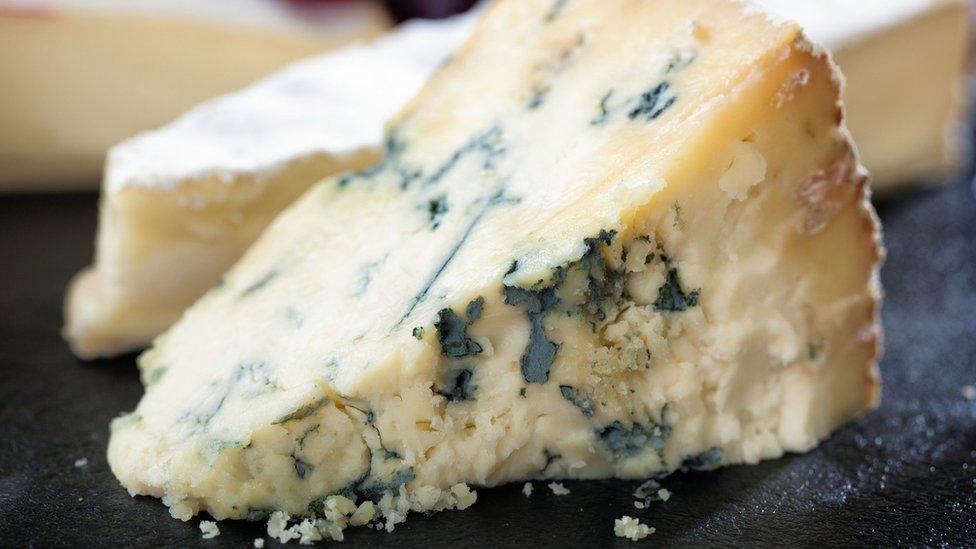British food: How traditional firms are faring under pressure
- Published
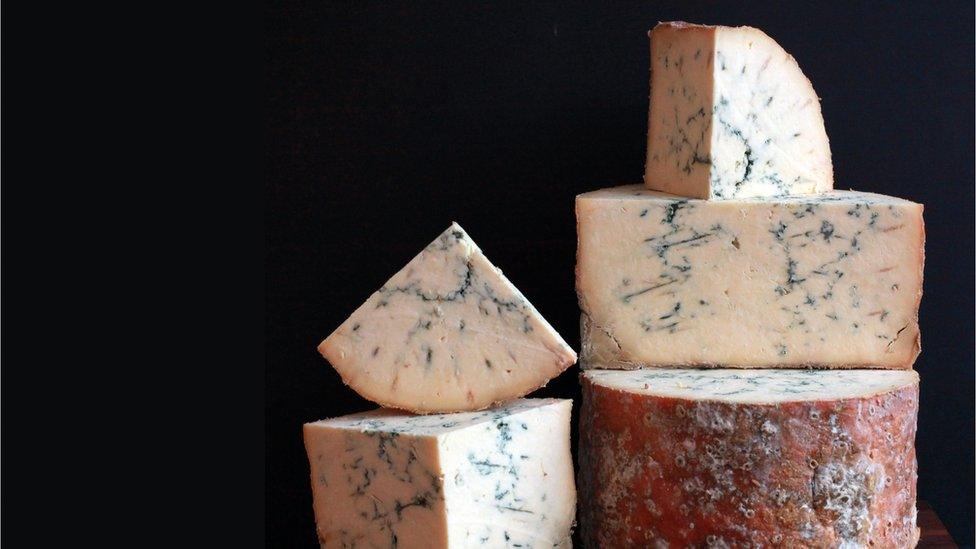
Stilton-making has been a way of life in parts of the Midlands for generations
Brexit, Covid, the cost of living crisis and now the Ukraine war have all taken their toll on British producers and retailers. The BBC asked the businesses behind some of our best-loved foods how they have weathered the storm - and what the future holds.
Within a mile-and-a-half of Billy Kevan's Stilton dairy, located amid the gentle wolds and pretty villages of the south Nottinghamshire countryside, lie three of the four farms that supply milk for his cheese.
"Two of them, we can almost see," he said.
Stilton-making has been a way of life for these villages for generations, but Mr Kevan fears the upheavals of the past few years, in the shape of Brexit, Covid-19 and the cost of living crisis have put traditional cheesemaking under unprecedented pressures.
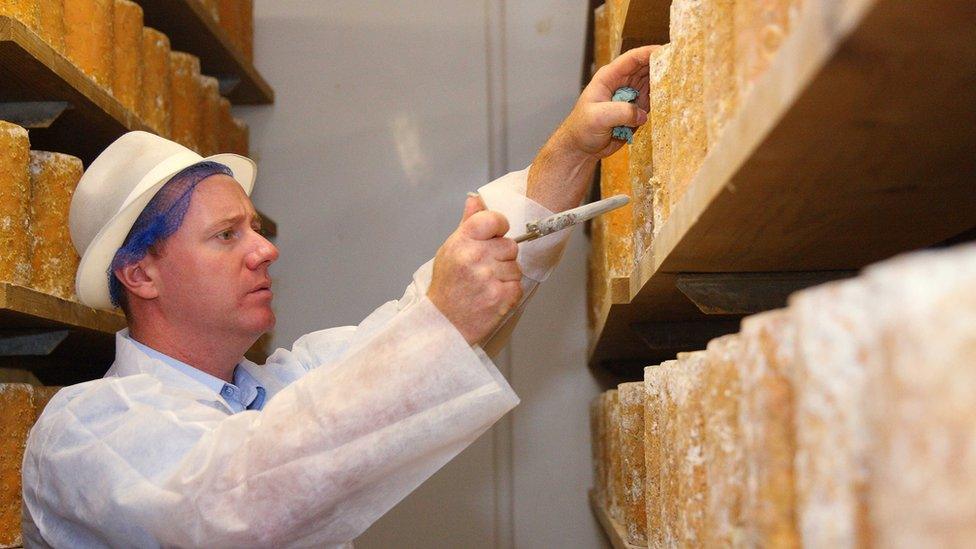
Billy Kevan says Brexit has made importing materials and exporting cheese more difficult
"We need things to settle down," said Mr Kevan, who is the CEO of Colston Bassett Dairy, in Nottinghamshire - one of just six businesses licensed to produce the cheese.
He said Brexit had made importing materials and exporting cheese more difficult.
"It's difficult and it's on a knife-edge," he said. "Since leaving the European Union, some of the red tape seems unreasonable.
"Not only do we have to get a vet certification for the cows that supply our milk, we also have to clarify whether the cows have been in the UK for a certain period of time.
"Some of our rennet comes from Scandinavia and, since we came out of Europe, we have seen prices go up."
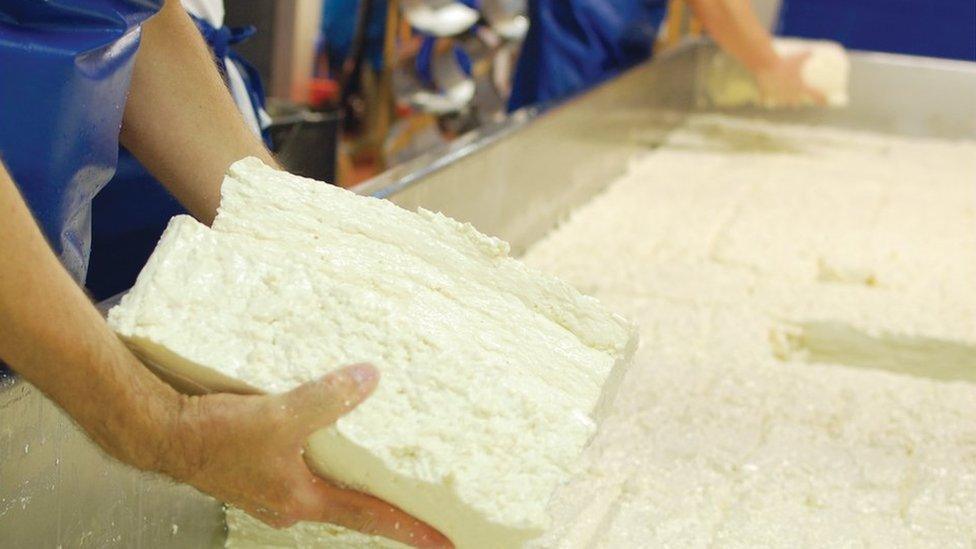
Price rises mean decreasing sales, Mr Kevan said
Mr Kevan said the cost of transport and raw materials - such as milk - have also taken their toll.
He and other Stilton manufacturers have expressed concern about proposals for new taxes intended to reduce salt.
"You add everything up together and it all goes on the bottom line," he said. "We have had a small price rise and we are looking at another one, but if you do that you reduce sales. You are effectively caught in a catch 22."

'More people are buying British'
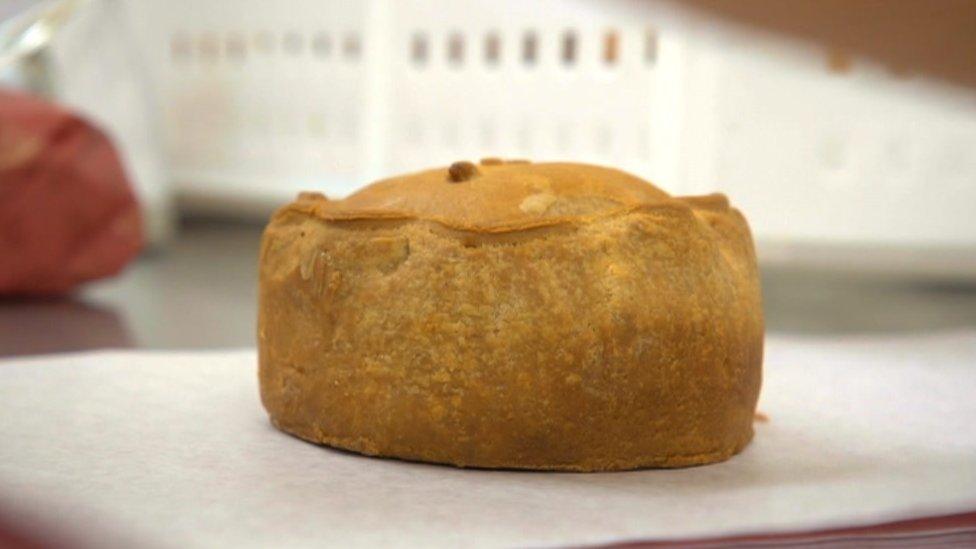
Pork pie makers deny their product was ever under threat from inferior imports
Following Brexit, there were headlines suggesting the Melton Mowbray pork pie was under threat from foreign imports.
But, according to Stephen Hallam, treasurer of the Melton Mowbray Pork Pie Association and brand ambassador for Dickinson and Morris, one of the Leicestershire town's most recognisable pie-makers, such stories were "scaremongering".
"They are perishable products with a very low price so they don't get sent around the world," he said.
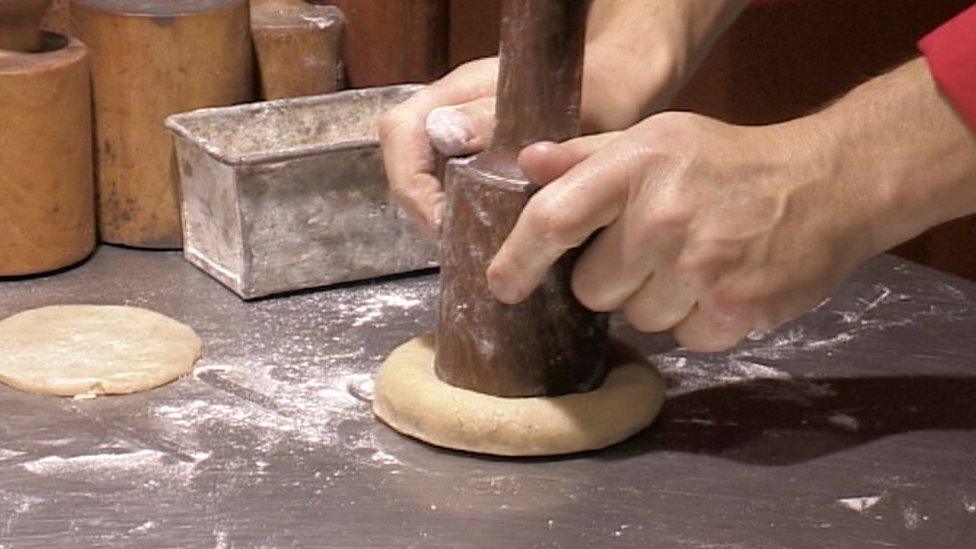
The process and ingredients of a Melton Mowbray pork pie are protected
Previously protected by European law, the pies now fall under the UK Geographical Indication scheme, external which protects the geographic names of registered food, drink and agricultural products.
"It's not an item that's exported so if anything, moving to the British scheme will hold stronger endorsement," said Mr Hallam.
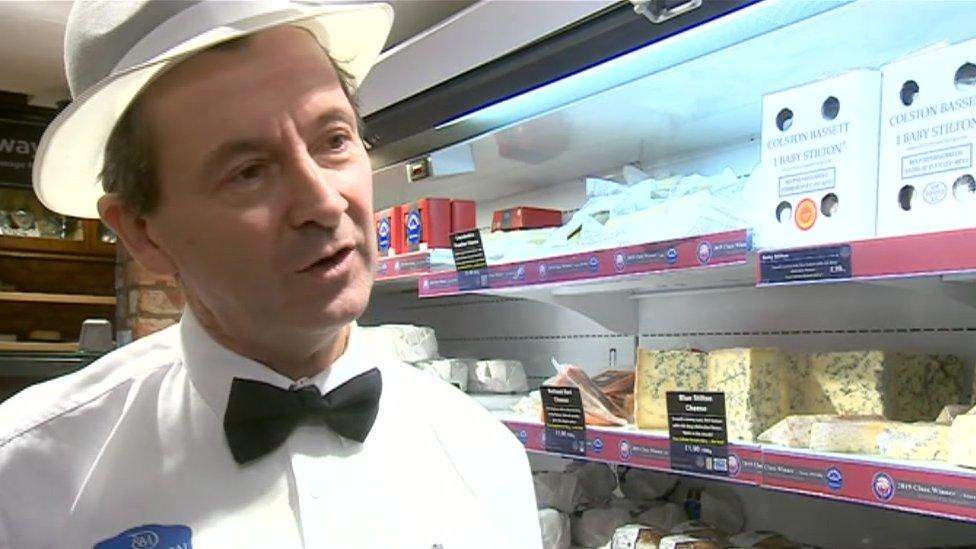
Stephen Hallam is positive about the product's future
"It's policed in Britain and it enables members of the public to flag up infringements to Trading Standards who police it.
"It has to be made within a designated geographic area around Melton and contain a certain type of uncured pork, as well as being baked without supports."
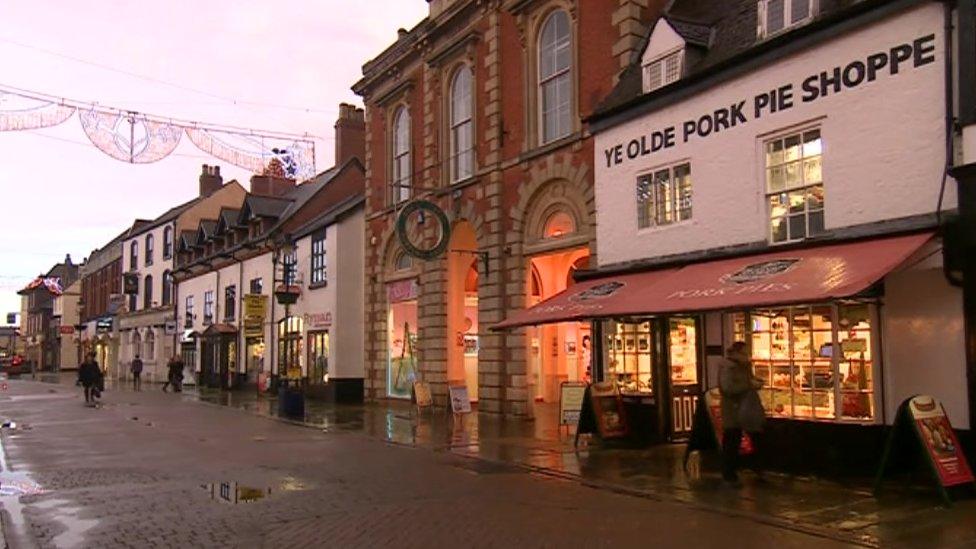
Christmas traditionally sees strong pie sales in Melton Mowbray
Mr Hallam said the pandemic had had a mixed impact on the famous pie.
"Covid stopped people coming through the door. Less footfall meant lower sales," he said.
"But the spend went up. It made people aware of what they are eating.
"Online sales also increased during the course of the pandemic.
"The visitors are starting to come back now and Christmas is always big for us.
"In the week before Christmas, we sold 30,000 pies; in a normal week, it's 4,000."
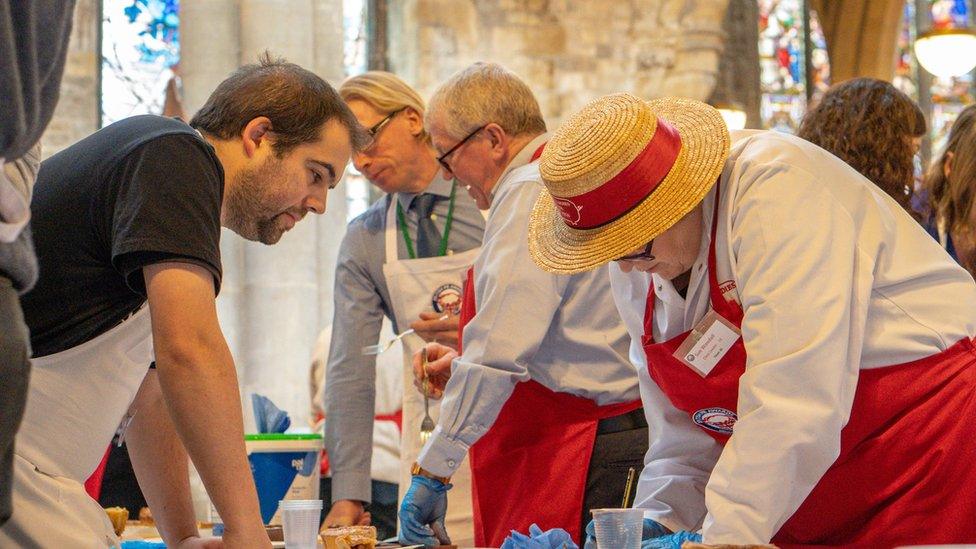
Melton's British Pie Awards has seen more entries than ever before
Soaring prices across the economy have pushed production costs, Mr Hallam said, but he believes they have also helped people consider how they spend their money.
"We are seeing more people buying British and local," he said.
"As belts are tightened, there is a concern about provenance.
"The price is going up because it's matching the costs - for example, the cost of power to run an oven.
"You can't not put the price up but sales haven't massively dipped."

'This business has so much history'
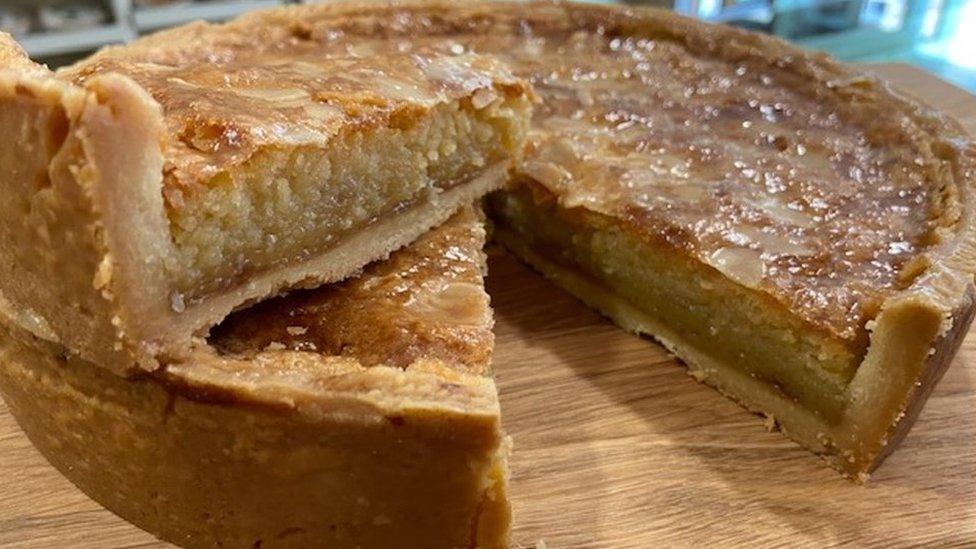
Bakewell tarts and puddings are shipped around the world
Duncan Kirk and his wife Fay could have been forgiven for thinking they had been pitched in at the deep end when they bought one of Bakewell's oldest tart shops.
"We took the business over in December 2019," Mr Kirk said.
"We closed to do some refurbishment and we managed to open for one weekend before the country went into lockdown."
But Mr Kirk said the history of the Derbyshire town's tarts and puddings, which have an established place in British food culture, meant the business has proved resilient.
"The business has been here for 120 years," he said. "It has a long history and it's something to be proud of.
"We had some hairy moments but this business has so much history and brand presence; it was always going to be fine."
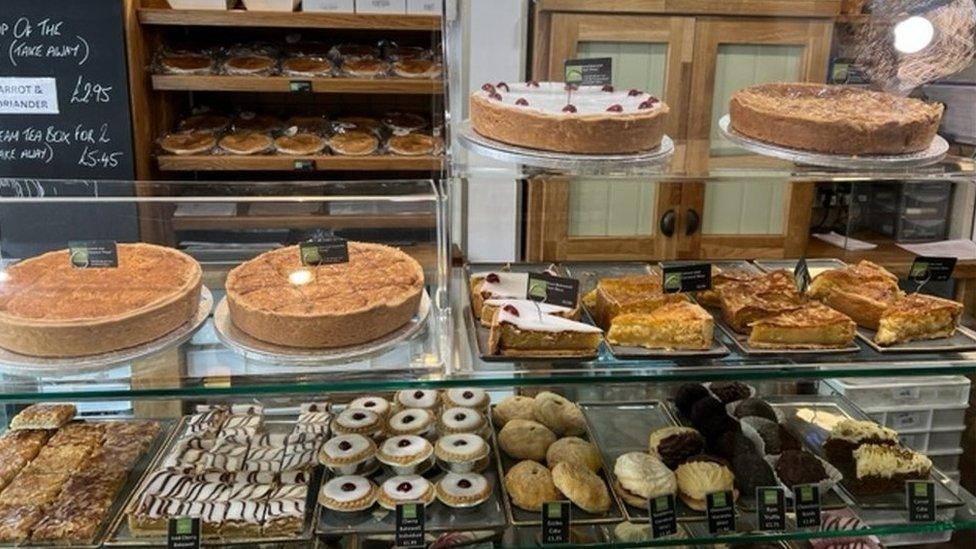
The core of the business is its cafe and takeaway
The pandemic also strengthened the business's online presence, as the shop ships Bakewell tarts and puddings - which are made off-site - around the world.
But the core of the business remains dependent on tourism - via its cafe and takeaway trade.
This suffered during the pandemic, although Mr Kirk said the relaxation of restrictions over the summer periods proved invaluable.
"In the summer months, we were open and domestic tourism was really strong," he said. "The pandemic would have been much worse had we been closed."
A Defra spokesperson said: "British food and drink, including Stilton cheese, is recognised worldwide for its taste and exceptional quality.
"Both Blue and White Stilton are protected as a Protected Designation of Origin, and their specific methods of production are essential to their identity.
"We are clear in our commitment to support our exceptional British food and drink producers, and protecting and enhancing the nation's health and natural environment for generations to come."

Follow BBC East Midlands on Facebook, external, Twitter, external, or Instagram, external. Send your story ideas to eastmidsnews@bbc.co.uk, external.
- Published2 November 2021
